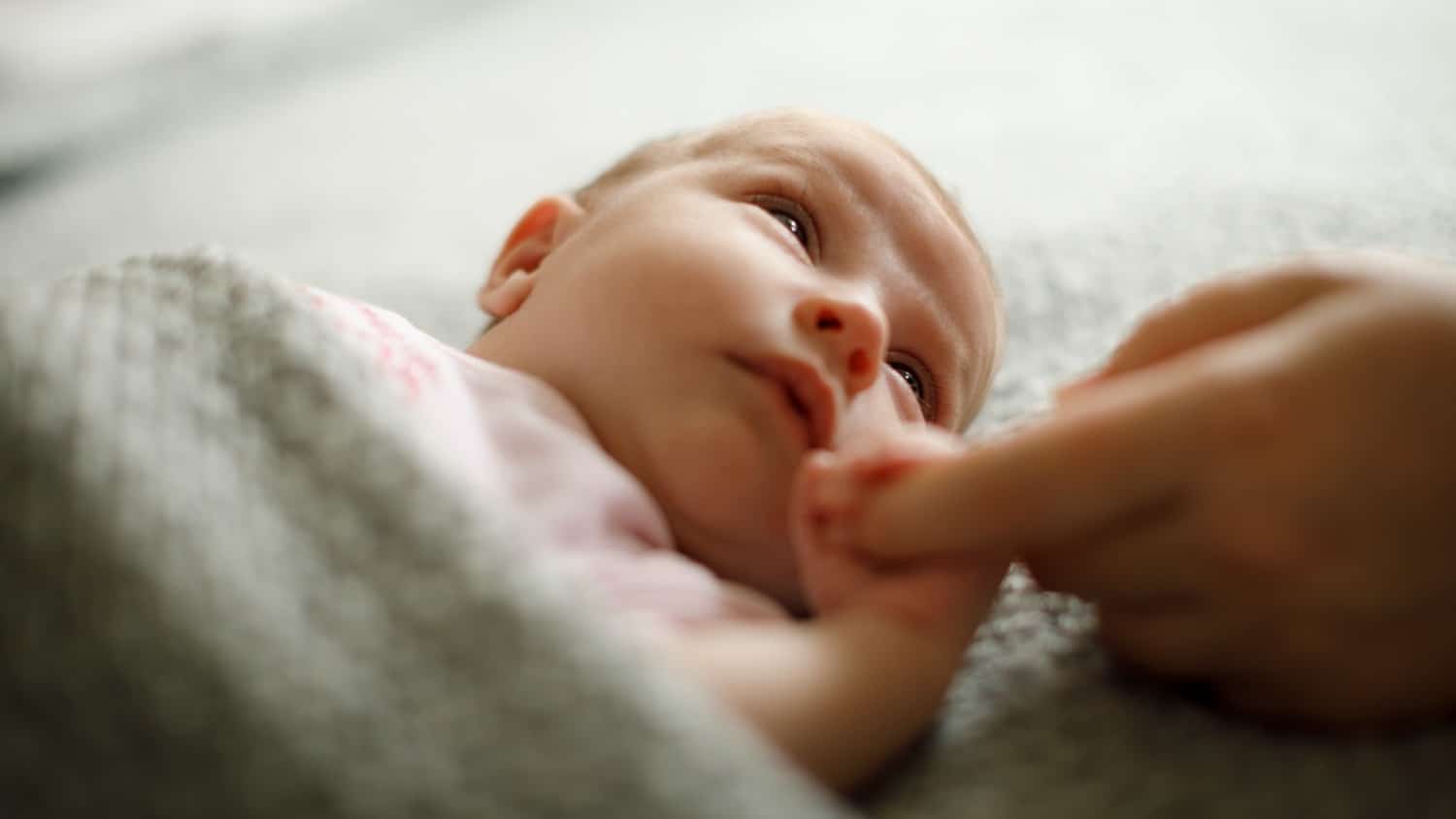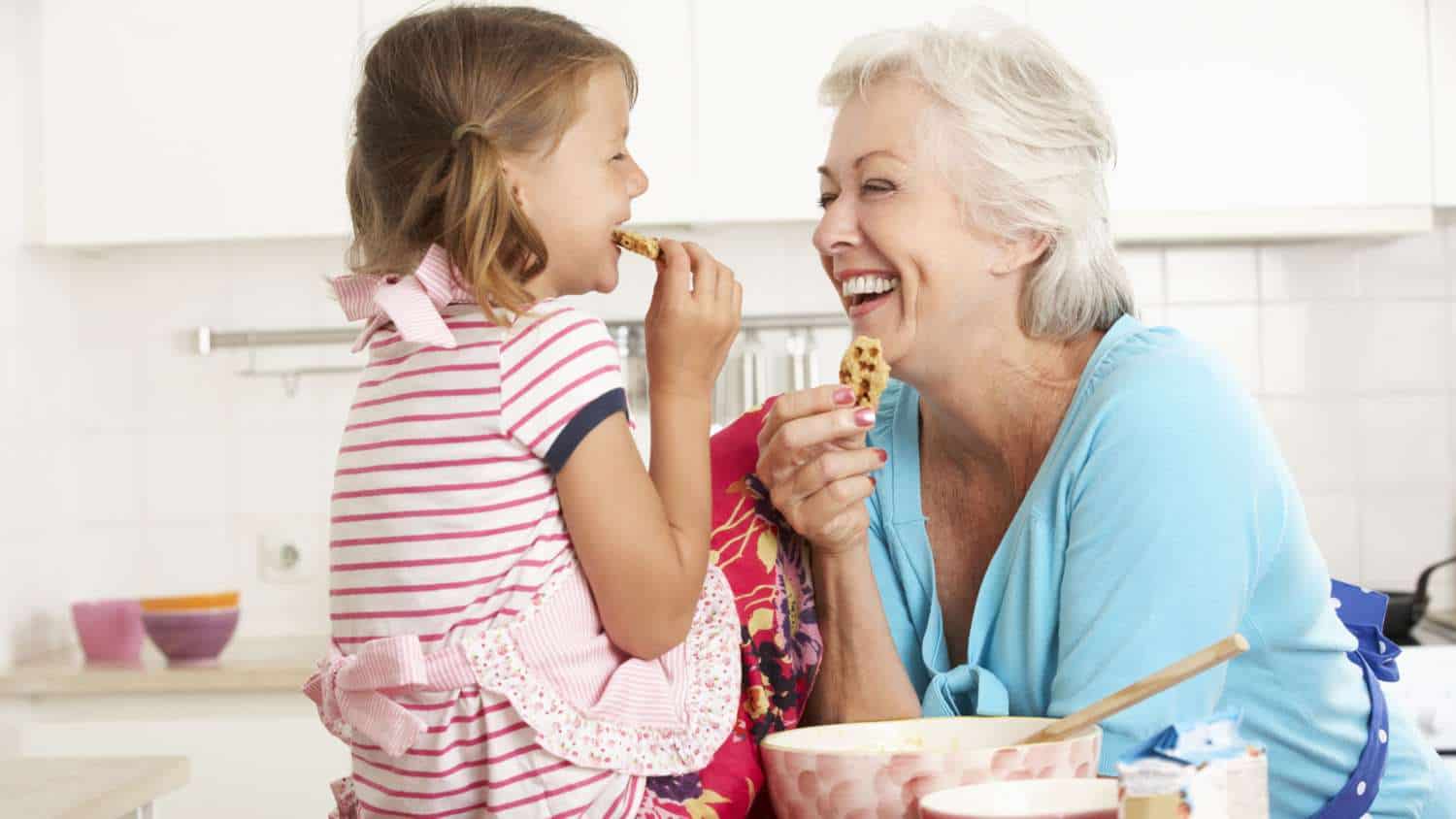
Solace for “Never to Be” Grannies
Grandparents have had an outsized role in my life. No, I was not blessed with four doting “Grans.” I only had three: one disinterested grandparent who lived at the shore, and two who primarily spoke Yiddish and whose hearts were scarred by the Holocaust.
The grandparents I valued most were the four who stepped in to help raise and love my daughter, and later their non-biological grandson, after my first husband’s tragic death at the age of 30. I never imagined that I would not be a grandmother, because those people were so vital in my life.
A Group I Didn’t Want to Join
It now appears that such a foregone conclusion will probably not come to pass. Because US Census data finds 86% of women in their childbearing years eventually have children, I find myself in a small, non-elite group of what a relative has termed, “infertile grandmothers.”
It is easy to feel the remorse of not having a new baby to hold or witness one’s family expand. There is not a natural outlet for sharing family stories, providing a legacy, or having a reference point as life marches forward.
There is a palpable sadness about loss of the opportunity to forge deep, emotional bonds with members of one’s own tribe. And it is in the word “tribe” that a wider understanding of grandparenthood emerges.
Are Humans Wired Up to Want Grandchildren?
Grandparenthood and the act of procreation are very closely aligned. Evolutionary biology finds that the interest in procreation is rooted in the human psyche. As the pandemic has vividly revealed, we are a social species. We like to gather and commune in familiar groups.
We value “belonging” in a huge way. However, there are differing opinions, both scientific and those based on social science about an innate need to procreate as parents, and later as grandparents.
What Are the Contrasting Theories?
The theory of pronatalism, which is a political idea dating back to the time of Louis XIV, promotes the value of human reproduction as an anchor to society. Religious groups such as Catholics, Haredi Jews, Mormons, the Amish, and Salafi Muslims are relevant examples. The main responsibility of their women is to procreate.
By contrast, scientific theories refute this idea, and claim that the sex drive in humans is more of a “pairing” ritual, because human infants benefit from more than one caretaker. Laura Carroll in her post on Invivomagazine.com refutes pronatalism. She describes three faulty assumptions: that it is “normal” to want to have kids, it is our “destiny,” and that having offspring is a key method for “fulfillment” in life.
After examining the literature, I feel somewhat like a victim of society’s powerful messaging, not to mention a personal, embarrassing wish: to have a grandchild with curly blond hair and blue eyes just like my children and me.
I Did Not Create the World’s Problems
Ultimately, the decision about whether I will become a grandmother is 100% out of my control. It is up to my children. Of course, romance and financial circumstances play a role, but in the modern world, there is a multitude of compelling factors that enter into the decision to have or not have a child. Psychologists advise wannabe grandparents to avoid the subject altogether to prevent estrangement from adult children.
The Brookings Institution expects 300,000-500,000 fewer births as a result of the pandemic. Effects of the Great Recession on our economy, the high cost of having a child, and exorbitant daycare costs buffered by stagnant wages are well publicized reasons for this trend.
Climate change, the wars in Ukraine and the Middle East, and the previously unimaginable closure of schools for extended periods of time are other strong reasons for the personal choice of going childfree.
Statista reports that in the US, 60.4% of women ages 25-29 and 38.5% of women ages 30-34 are childless. Those numbers are staggering to a woman who had her first child at age 27, like so many of her peers! Medical experts suggest the prime ages for childbearing are the late 20s to early 30s. Obviously, our society is not attuned to that important biological fact.
These arguments are not offered as “sour grapes.” These are the real reasons many couples choose not to have children. There is also the issue of fertility as couples need to build significant resources before establishing a family, delaying attempts to become pregnant.
Creating a Life of Meaning
With the evidence that bringing a child into the world at this time can be a burden and a great risk, the more self-centered reasons of romanticizing babies, and seeing grandchildren as an extension of oneself seem quite trivial. The question of how a fertile or infertile grandma can find meaning in her own life will always be a key dimension of retirement in all circumstances.
The Voluntary Human Extinction Movement has many suggestions which it offers to young adults to encourage a childfree life. This organization aims to enlist followers to remain childfree to “return the earth’s biosphere to its former glory.” Their list of suggestions very closely parallels substitute activities for grandparent wish fulfillment.
If you want to make a lasting contribution to society, think of a good way to give back to the world. If you want to carry on your family name, make a donation to a charity in your own name. If you love babies, volunteer in an NIC unit or become a foster grandparent. If you have the need to nurture, use your skills with the elderly, the ill, the handicapped, plants or animals.
All philosophical discussions circle around the main objective of the later stages of life: finding meaning. Those who are bona fide grandparents cannot be seduced by an easy slide into this role, as the role of a grandparent is anything but “easy.”
While there are many advantages for three generations, there are limitations. Wishes of parents must be honored, unlimited freedom and control of the kids do not exist, and grandchildren can become an unhealthy obsession, becoming a placeholder for more individual pursuits.
Personally, my new-found acceptance of being grandchild-less fits more into my universal way of looking at the world. I accept that I am a very, very small part of the cosmos. I am but one of billions of organisms on this earth, each of which has a particular lifespan and connection to others.
I look at this stage of life as having the time and wisdom to begin seeing myself as a new individual, no longer bound by former roles and responsibilities. There is so much work which needs to be done in this world. I relish finding those situations which suit my values and physical capabilities. Most importantly, I truly accept that my two children are the sole deciders if there will be new branches on the family tree, a harmonious way of being.
Let’s Have a Conversation:
If you are a “never to be” grandma, have you learned to accept this situation? What life experiences have contributed to where you stand in this matter? If you are a grandma, is the reality as rosy as it appears to those of us without grandchildren? Are we truly missing out on a key life experience?
Tags Grandchildren







My son and daughter aren’t going to have children and I was initially heartbroken. I love children and was looking forward to being a “Oma”. I have accepted it and understand they don’t want to bring children into this messed up, violent world. I would think twice if I was in my childbearing years. Most of my peers are grandmothers and am still envious at times.
I have 2 grandchildren and for me, it has been a joy–mostly because as single parent, I really struggled raising my daughter. I was not blessed with a devoted partner and my own parents were disinterested. So I did get to experience watching kids go from infant to nana to preschooler, to child and now: TEENAGERS. The universe is far different than it was in 2006 when my grandmothering started.
As a biologist and Ph.D., I have to question the selfishness of people who would subject children to the future hellscape that is coming – and quickly. My two sons have chosen not to have children and I’m relieved. From a personal standpoint, I love babies, but look at women my age who are devoting this fascinating time in their lives to being with babies – again – and wonder why. I’ve become an artist in my later life and find it so fulfilling, I wouldn’t want to sacrifice the time and headspace to grandchildren. Sometimes I listen to friends droning on about their grandchildren and think, “God, woman, get a life.”
Very judgmental comment. Wanting to have a child is not selfishness. You sound like a selfish individual whose life revolves around yourself.
Ha, I knew I’d get at least one of these comments. What is selfish about wanting to develop one’s self? I am an incredible mother – homeschooled both my boys into college and we support nine children living in poverty in Asia. Your attitude is out-moded, short-sighted, and not shared by most young people today. It’s time to step into the twenty-first century.
I think people who drone on a.d on about their grandchildren are selfish smd utterly bori.g
I feel bad that I am not a grandmother sites but I realize it is something I cannot do anything about
I write and volunteer to keep busy
I couldn’t agree with you more, Susan!! My son doesn’t have any children and won’t be having any. I might miss being a grandmother if I had some grandchildren who suddenly moved to Mars. But I do not have time to raise another baby. I have things I love to do. (I’m an artist, too.)I watch members of my family give up their lives to be (almost) mommies again and I don’t get it. Like you, I love babies and I’m always happy to see my great-nieces and nephews. But I love and need my time.
I don’t disagree with what you say but I despise your negative world view. I have no illusions about the trouble the world is in but humans have always been clever, inventive, resourceful creatures and I have every belief that we will wriggle our way out of the very serious problems that we face.
Love this comment Toni.
And is there really any reason to ‘take sides’ on this issue?
I am a Granny of 7 at the moment with more to come and feel it is a good use of some of my time and skills to assist the next generation.
I also have other interests.
Giving back where we can is good for us and others whatever our situation in life.. Granny or not.
End of sermon 😊
I’m astonished by you tone of anger!
My husband and I have a wonderful life hiking the nearby mountains, enjoying books and movies, and we have a wide and varied group of friends. However, at age 71, I am very sad that I will never have a grandchild. I believe that it’s possible to have a rich life *and* share in the joy of a child.
I am terribly sad that I shall never be a grandma. My sister didn’t have children, and my daughter has never met the right man and has now gone through the menopause so our family line has died out. I am a proxy grandmother to a friend’s children and I am also a great-godmother!) but it’s not the same. That ‘tug of the blood’ is missing.
If you want the “tug of the blood” and a genetic connection, let me suggest a DNA analysis. You’ll find plenty of family there, possibly world wide.
I have accepted it, but sometimes I wish… However, because my daughter married late and her husband had grown children with kids, she gets to be a grandmother. Funny how that worked out.